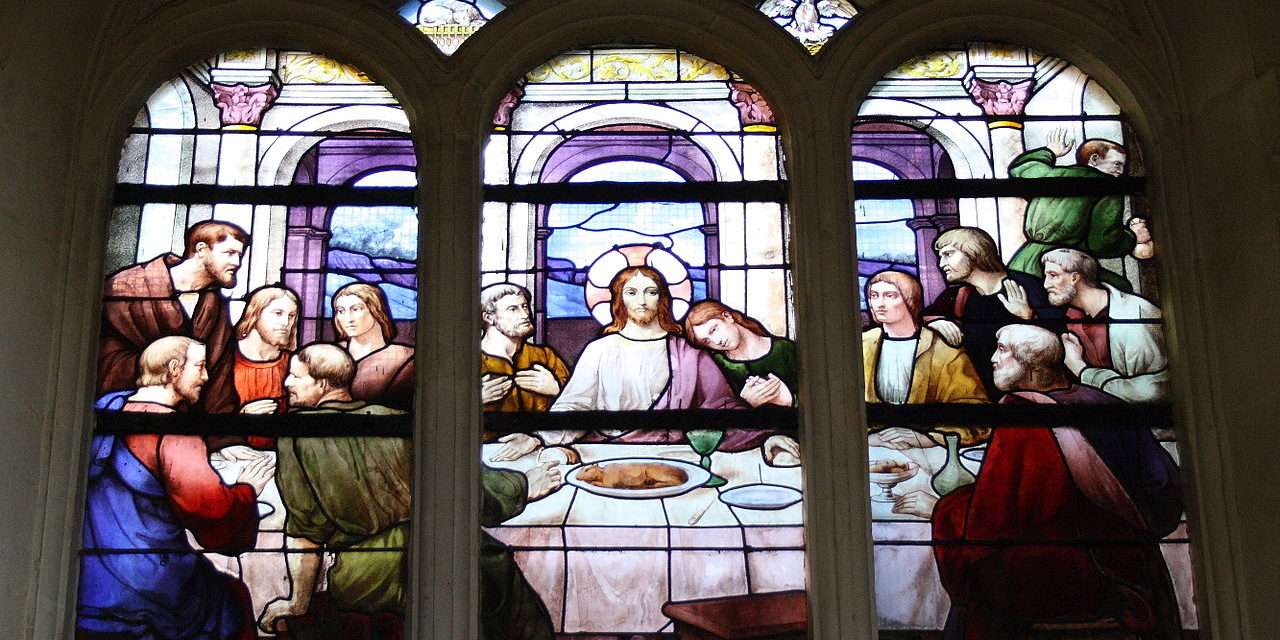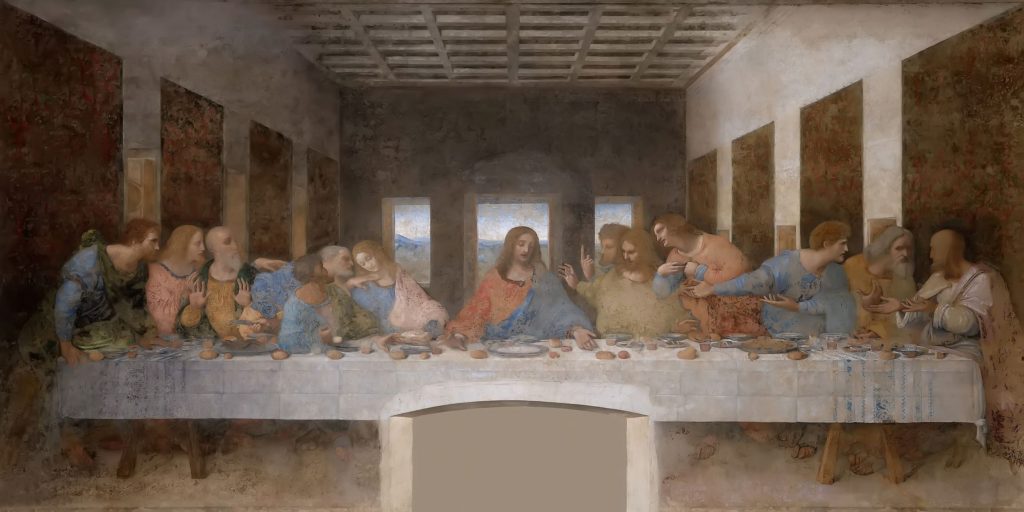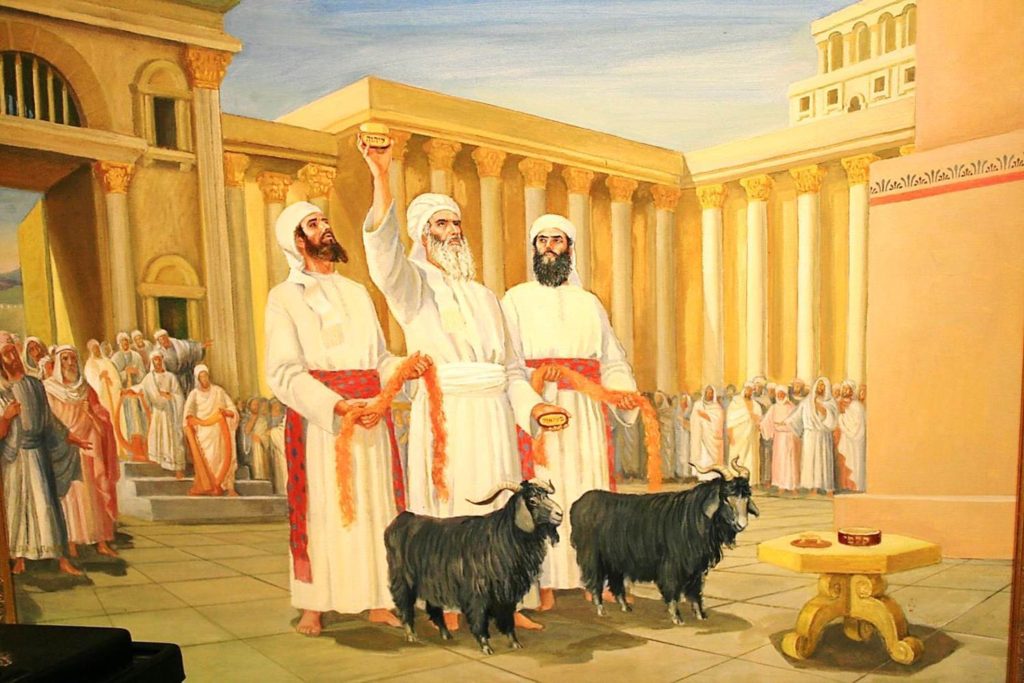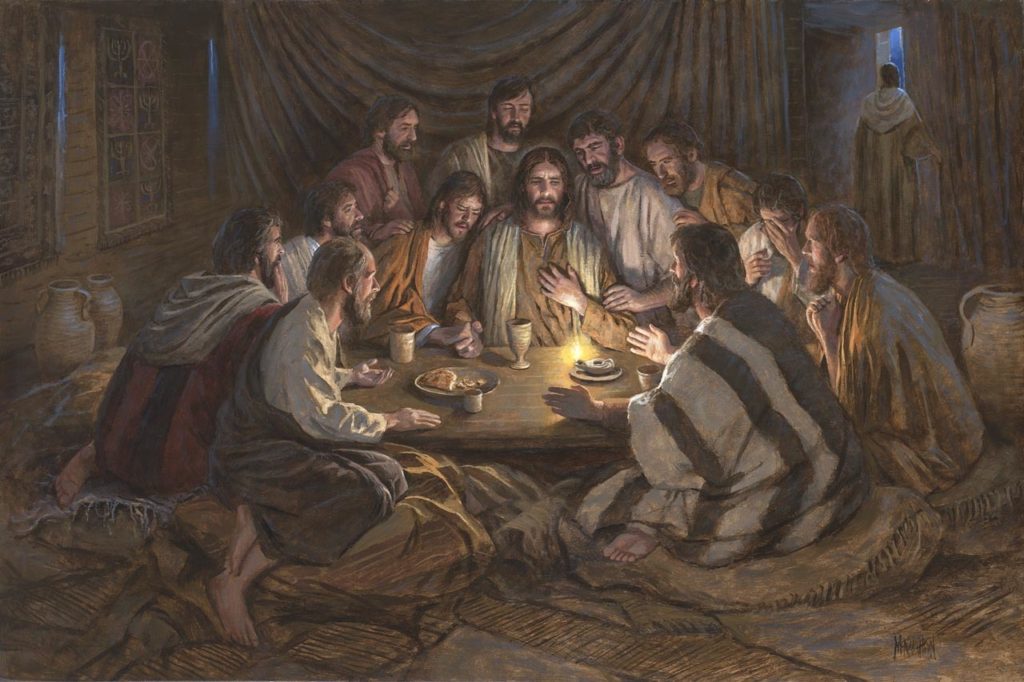We get used to seeing things in the same way. Or we overlook things. Our brains often fill-in with what we expect to see. This is true with the scriptures. I try to be open to new inspiration, new ideas. Hugh Nibley said in a Book of Mormon class that he was going to share some things that he had never seen before — and he had read that book numerous times. That’s why the scriptures are timeless. And that includes the Sacrament.
I just realized that the sacrament extends back in “time” and forward in “time” — so much so that it is actually timeless — it has significance and symbolism that spans eternity.
God wants us to remember things, which is often difficult for us humans. Plus, we need to have some experience to remember. We see everything in time, because we live in time. But really, God’s “time” is not our “time” — or God sees all time at one time — another difficult concept to grasp when we live in time.
In the Church we take the sacrament each week in sacrament meeting. Yet, it often becomes a rote practice. The same prayers over the bread and water slide past our mind with familiarity. We routinely do as we have learned — repent of our sins, remember Christ’s suffering for us – remember our baptism, or if you are under age eight, I’m not sure what you are thinking. Not your baptism, so maybe this sacrament has some other meaning or maybe you shouldn’t take the sacrament until you have been baptized. Thoughts for another day.
Looking Backward and Forward
Elements of the sacrament are found in the rituals of the Day of Atonement , The Passover, and the Last Supper. Looking at what the early apostles recorded, we find that the last supper also has an element of looking forward to Christ’s return — The Millennial Day
And as they were eating, Jesus took bread, blessed and broke it, and gave it to the disciples and said, “Take, eat; this is My body.”
Then He took the cup, and gave thanks, and gave it to them, saying, “Drink from it, all of you. For this is My blood of the new covenant, which is shed for many for the remission of sins. But I say to you, I will not drink of this fruit of the vine from now on until that day when I drink it new with you in My Father’s kingdom.”
(Matt 26:26-29)[also Mark 14:22-25, Luke 22:14-20, 1 Cor. 11:23-26]
The Day of Atonement
The sacrament is not only the reenactment of the Lord’s Last Supper, but also the Day of Atonement when the High Priest offered sacrifice on the altar:
“Let them eat of the goat which is offered for their sins at the fast, and [note this carefully] let all the priests but nobody else, eat of its inward parts, unwashed and with vinegar.”’
“Jesus drank vinegar just before he died, said Barnabas, to prepare himself as the atonement sacrifice that the priests consumed. This would explain why the Eucharist (sacrament) has the imagery of consuming blood, an otherwise un-Jewish practice. Blood was consumed with the unwashed sacrifice on the day of atonement. Thus the Eucharist is not drawn just from Passover, but, as set out in Hebrews, from the day of atonement also.”
(Heb. 9.11–14). ( Barker, Margaret. Temple Mysticism: An Introduction (p. 29). SPCK. Kindle Edition.)
The Passover
The Passover is also linked to the sacrament, especially since Christ is observing this sacred rite when he explains the new covenant.
The Cups of Wine in the Passover
Among the many symbols included in the Passover meal are the five cups of wine. The first four cups of wine represent the four promises God made to the Israelites in Exodus 6:6-11. These cups all symbolize the deliverance and freedom from bondage in Egypt.
Cup 1 — Cup of Remembrance — Therefore say to the children of Israel: ‘I am the LORD; I will bring you out from under the burdens of the Egyptians
Cup 2 — Cup of Salvation: I will rescue you from their bondage
Cup 3 — Cup of Redemption: I will redeem you with an outstretched arm and with great judgments.
Cup 4 — Cup of nationhood, both spiritual and physical: I will take you as My people, and I will be your God. Then you shall know that I am the LORD your God who brings you out from under the burdens of the Egyptians. (Exodus 6:6-7)
Cup 5 — “And I will bring you into the land which I swore to give to Abraham, Isaac, and Jacob; and I will give it to you as a heritage: I am the LORD.’” (Exodus 6:8)
The seder doesn’t just look back to the past, to the Pharaohs and the pyramids; we also look forward to our redemption in the future. (Chabad.org)
Although the fifth cup is referred to as the cup of Elijah — it refers to the coming of the Messiah. “Judaism sees the Exodus from Egypt as the beginning of a process to be completed by our redemption through Moshiach (Messiah). ” (Chabad.org)
I think it must be one of those precepts of men in the church that Elijah has already come and fulfilled that Jewish teaching. I used to believe that. But now I see that the cup of Elijah is still waiting. That fifth cup of wine is waiting for the Messiah to come again.
Luke 22:17-18 says,
Then He took the cup, and gave thanks, and said, “Take this and divide it among yourselves; for I say to you, I will not drink of the fruit of the vine until the kingdom of God comes.”
Sacrament Prayers
The sacrament prayers bless and make sacred (a) the bread to be eaten in memory of the body of Christ, and (b) the water to be drank in memory of the blood of Christ. We tend to focus back on the atonement, remembering Christ’s sacrifice. But we can also look forward to the day we are in God’s kingdom.




